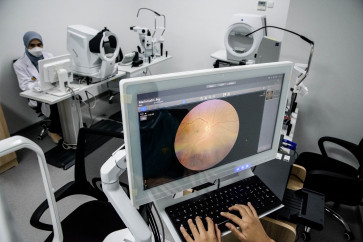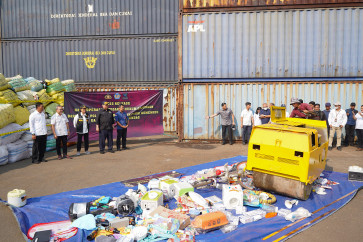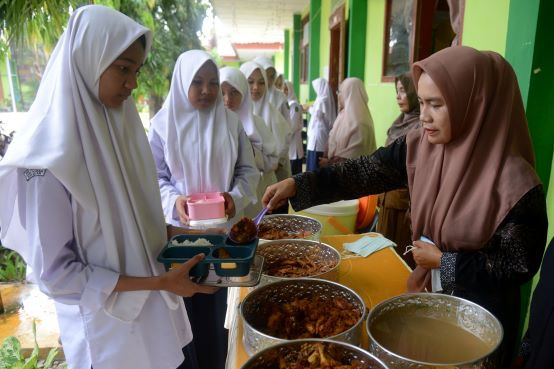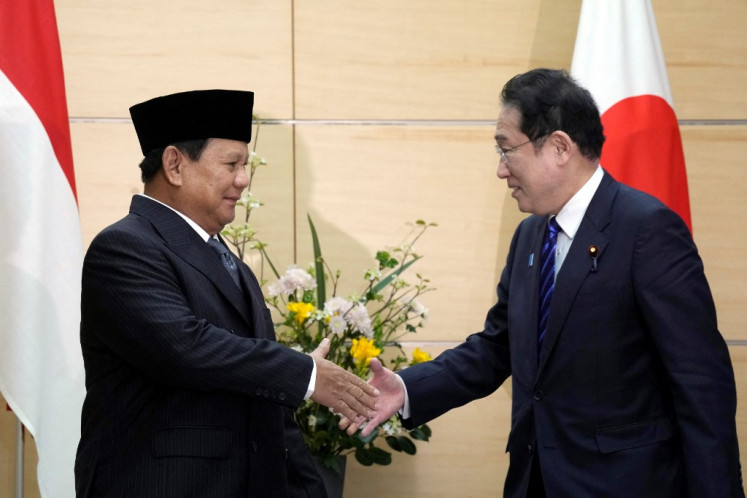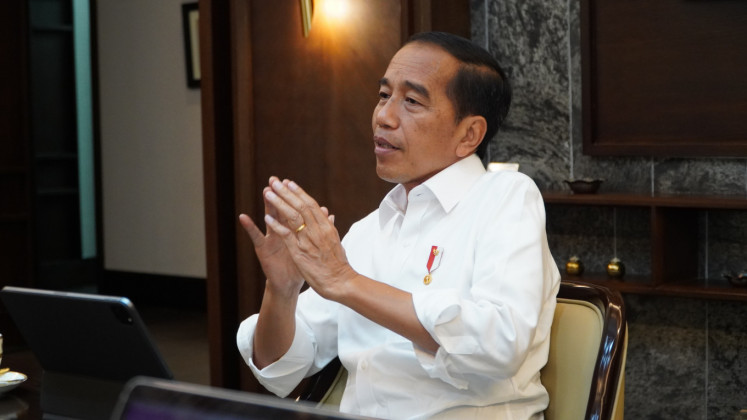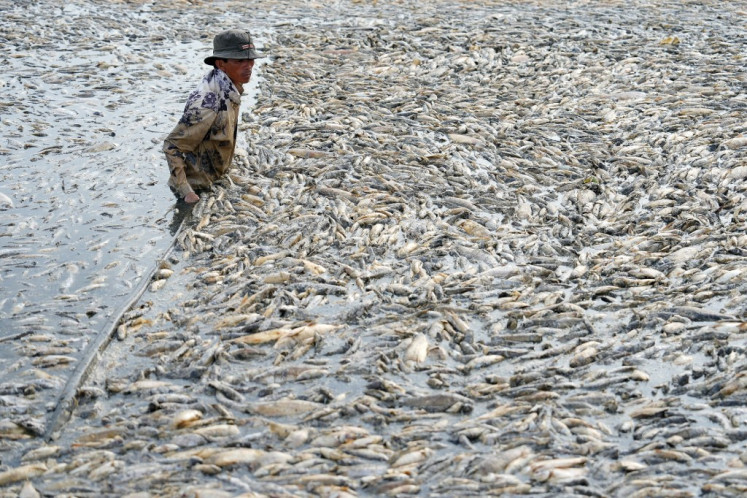Can ASEAN be really 'people-centered'?
A people-centered ASEAN is not merely about explaining to the wider population what ASEAN is.
Change Size
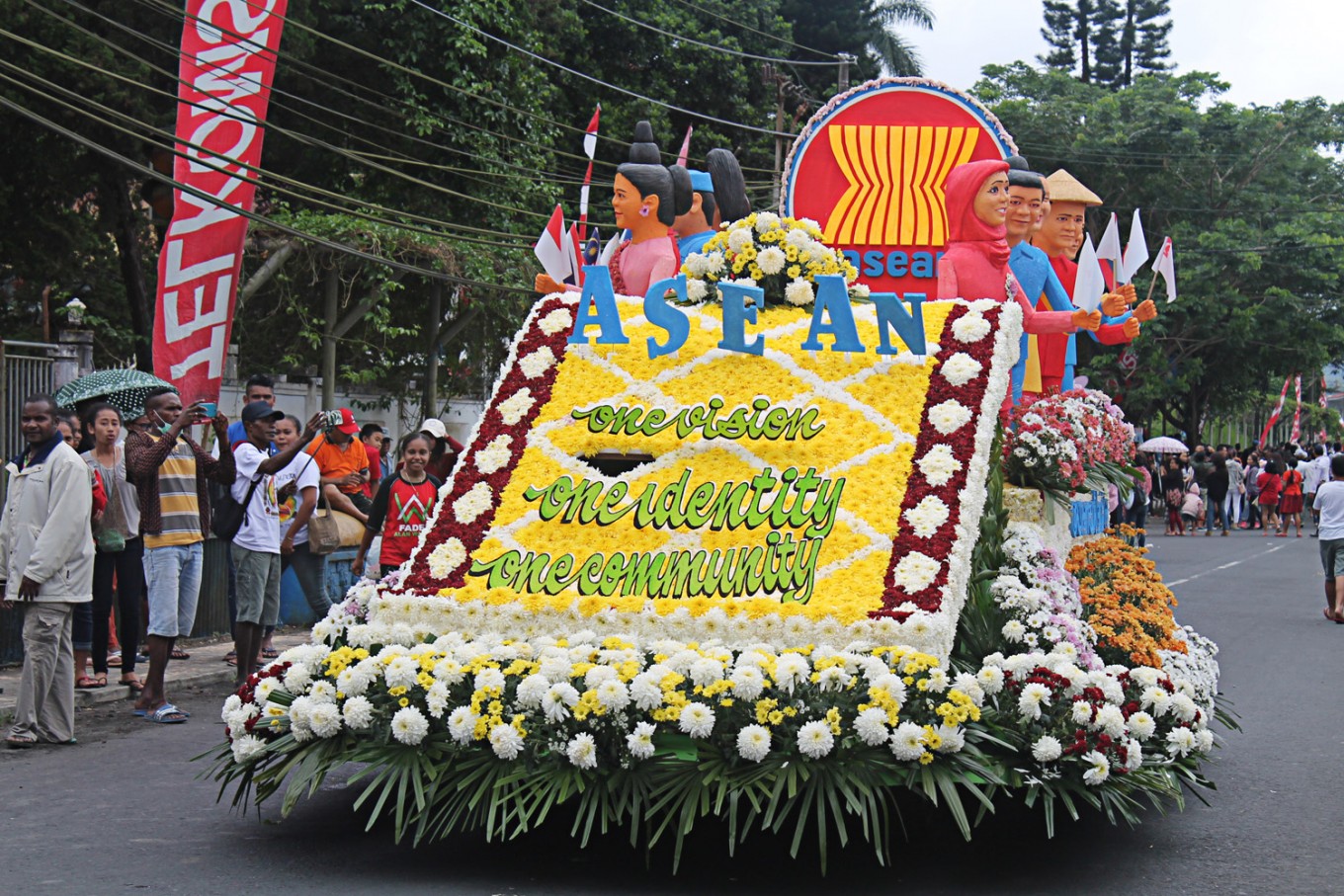 Floral attraction: The Jakarta-based ASEAN Secretariat takes part in the Tomohon International Flower Festival (TIFF) 2017 in Tomohon, North Sulawesi. The annual event aims to attract more tourists to the region and improve the local economy. (JP/Eva Aruperes)
Floral attraction: The Jakarta-based ASEAN Secretariat takes part in the Tomohon International Flower Festival (TIFF) 2017 in Tomohon, North Sulawesi. The annual event aims to attract more tourists to the region and improve the local economy. (JP/Eva Aruperes)
W
hile more and more individuals have become aware of ASEAN’s existence, few understand what it does and perhaps even fewer identify themselves with it. This begs the question of what good ASEAN is if its citizens fail to appreciate its existence.
ASEAN leaders who celebrated its 50 years agreed in 2015 under Malaysia’s chairmanship to adopt a declaration to make ASEAN a people-oriented and people-centered organization.
This declaration is in a way an acknowledgment of the organization’s shortcomings in spite of its achievements. One of ASEAN’s biggest achievements is its ability to cultivate a culture of dialogue and consultations that have encouraged member countries to exchange ideas and deal with their differences, and in so doing build confidence and overcome distrust. Southeast Asia has been able to remain peaceful and ASEAN’s diplomatic and economic standings have increased over time – for which its people should appreciate.
Yet gratitude comes more from a direct than an indirect relationship.
A people-centered ASEAN is not merely about explaining to the wider population what ASEAN is. New spaces must be opened up for people to experience ASEAN and be part of the process.
One area that ASEAN has shown efforts is in the youth sector where various programs are being implemented to promote ASEAN awareness and provide youths with the opportunities to contribute to its development.
Inclusivity is the key to generating appreciation for ASEAN. Selective inclusivity, i.e. supporting participation of those willing to subscribe to ASEAN’s ideals while reluctant to engage those who criticize, however will unlikely produce the desired results.
Since 2005, the ASEAN Peoples’ Forum or the ASEAN Civil Society Conference (ACSC) that represents civil society organizations (CSOs) critical on issues such as human rights, discrimination and inequality, justice, democratic process and good governance, has not been able to meaningfully engage ASEAN.
Their 2016 statement read, “ASEAN civil society remain extremely concerned about ASEAN’s prevailing silence and lack of attention and response to the observations and recommendations raised in all previous ACSC/APF Statements”. After 12 years the Forum and many of its members remain outside of the listed “Entities associated with ASEAN”.
They have also criticized a number of ASEAN mechanisms to support the “people-centered” notion including the ASEAN Charter and the ASEAN Intergovernmental Commission on Human Rights (AICHR). They even wanted to create their own ASEAN People’s Charter.
Therein lies the contention and disconnect between an elite-driven ASEAN and cause-driven CSOs like the People’s Forum. ASEAN produces statements that show the organization’s forward thinking but are short in delivery.
ASEAN’s test of its resolve in transforming itself into a people-centered body representing a community of 625 million people cannot only be measured by the number of people-to-people exchanges across the region or how cheaply goods and services from reduced tariffs have benefitted the public.
More imperatively its resolve to become people-centered must be measured by its ability to listen attentively and work with CSOs to genuinely overcome human security threats such as the displacement of persons, kidnapping and disappearance of individuals, corruption, land grabbing, exploited and trafficked migrants, impunity, environmental degradation, sexual discrimination, extrajudicial killing and more.
A classic example is the failure of the organization to address the alleged atrocities against the Rohingyas and their displacement. How can ASEAN become people-centered when the Rohingya issue could be kept out of their agenda in the name of non-interference, while it was actively discussed in the UN Human Rights Council, of which Indonesia and the Philippines are current members?
The unimproved situation of the Rohingyas and their land confiscation were among issues highlighted by Yanghee Lee, UN Special Rapporteur on the Situation of Human Rights in Myanmar, after her latest visit to Myanmar in July 2017.
Lee even appealed to ASEAN “to take a ‘non-indifference’ stance” on Myanmar. ASEAN’s silence has indeed been deafening.
Worse, reports indicate a growing threat from Islamic State (IS) supporters willing to get involved in support of the Muslim Rohingyas in Myanmar as IS expands to Southeast Asia.
ASEAN keeps mum over allegations of human rights violations and its human rights arm – the AICHR – has no jurisdiction to protect victims despite its purpose to “promote and protect human rights and fundamental freedoms of the peoples of ASEAN”.
What CSOs consider as issues fit for discussion at the regional level are at times viewed by the ASEAN elites as sensitive and under the purview of individual member states. This disjuncture must be bridged if ASEAN is to positively transform itself.
And one way to bridge the division is to develop rigorous spaces for consultations at differing levels between ASEAN officials and civil society movements. Genuine rather than superficial engagement is of utmost importance to develop mutual trust and to bring people-focused issues to the fore.
A people-centered ASEAN enforces effective regional governance by working with multiple levels of non-state actors regardless of their political orientations to address threats to peoples’ wellbeing. For this purpose ASEAN should establish robust mechanisms to not only protect its citizens but also uphold their right to live in dignity.
***
The writer is an associate professor at the Universiti Sains Malaysia, Penang, Malaysia and is currently an associate fellow at the ISEAS – Yusof Ishak Institute, Singapore.
---------------
We are looking for information, opinions, and in-depth analysis from experts or scholars in a variety of fields. We choose articles based on facts or opinions about general news, as well as quality analysis and commentary about Indonesia or international events. Send your piece to academia@jakpost.com.


